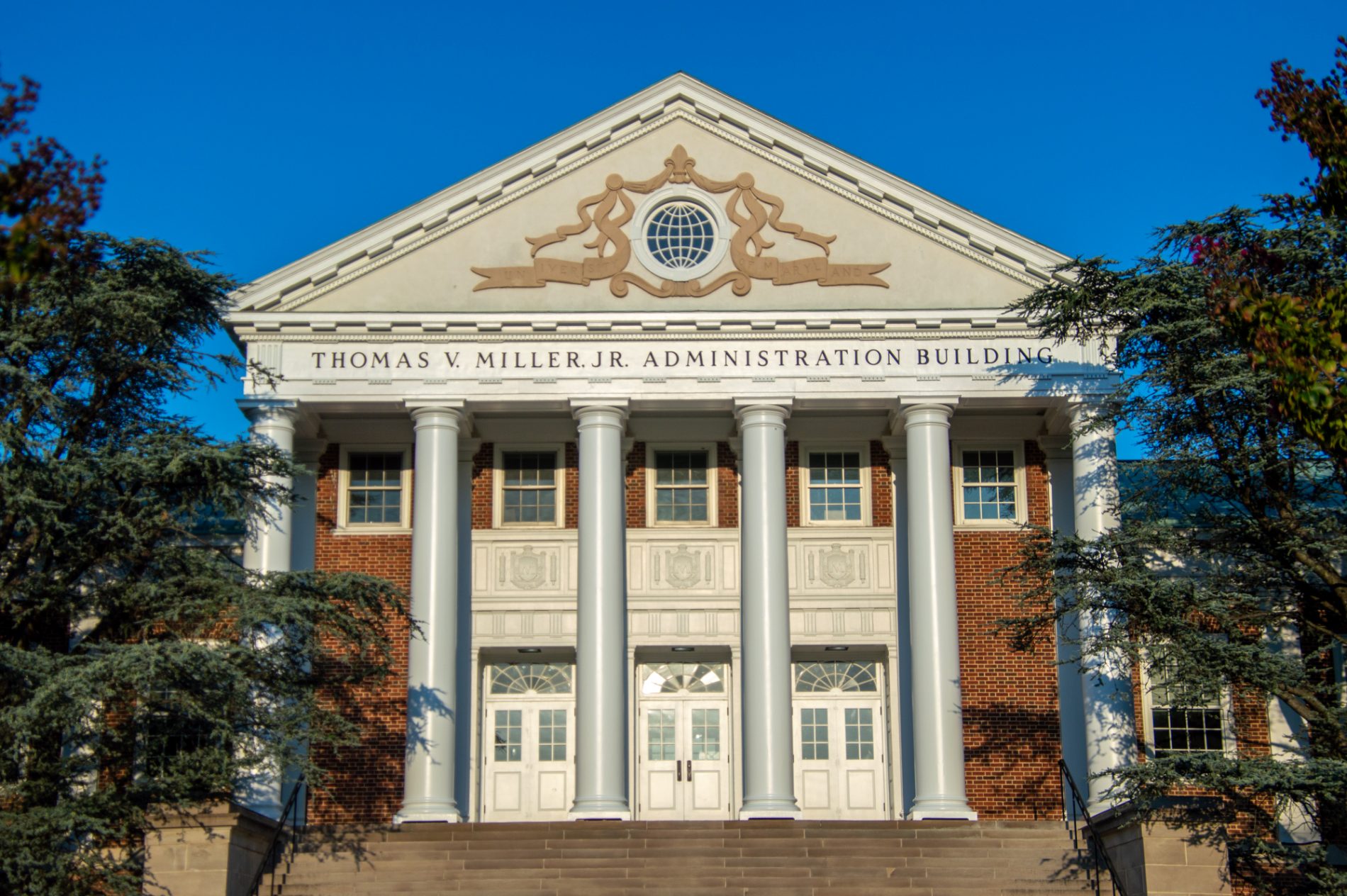The University System of Maryland’s Advancement Committee voted Thursday to approve revisions to the policy that dictates how buildings and programs are named at system institutions.
The changes — which come after colleges across the country have changed the names of campus buildings with ties to slavery or the Confederacy — will require universities to use increased scrutiny when choosing a new name and offer them guidance on how to go about removing controversial names.
In a statement, a spokesperson for the university system acknowledged the Board of Regents’ responsibility to ensure the namesake of a building or program aligns with the system’s mission and values.
“Given the recent national focus on recognitions that have involved individuals or histories with controversial or painful associations,” the statement read, “the USM has undertaken a process of revising its naming policy to bring specificity to naming and renaming considerations.”
If the full Board of Regents approves the changes, system universities will have to send a detailed report of a namesake’s background when proposing a new building name and examine any controversies that could arise. The body will most likely vote on the proposed revisions at a meeting later this month, the spokesperson said.
The proposed revisions also include an appendix with guidelines on what factors universities should consider before requesting that a building’s name be removed.
The request should include documented research about the namesake’s “objectionable behavior” and examine whether the namesake “undermines the ability of a significant number of individuals or groups to engage in, or feel a sense of belonging to, the university community.”
[UMD renames administration building to honor Thomas V. “Mike” Miller]
They stipulate this process should rarely be used.
“A request to remove a name is likely to elicit strong opinions,” the appendix reads. “It is essential that different perspectives are given respectful consideration.”
The new revisions could reach the University of Maryland in the future, as some academic buildings on the campus are named for people who supported slavery, such as Francis Scott Key Hall.
Just after he came into the role in July, university President Darryll Pines told The Diamondback he hoped to review the names of buildings on campus to “demonstrate our commitment to diversity and inclusion.” He added that he would be open to working with the community to evaluate the best practices for changing building names.
In 2015, the Board of Regents approved the renaming of the university’s former Byrd Stadium to Maryland Stadium. The original name was an homage to former university president Harry Clifton “Curley” Byrd, a segregationist who kept Black students from enrolling at this university until a court order forced him to do so.
[Some Black UMD students appreciate Pines’ actions, but others say he lacks urgency]
But the ruling also came with a five-year moratorium on changing the names of buildings that recognize historical figures. That will expire in December, opening up the possibility of changing these historically named structures.
Recently, the university has come under fire from student group Black Terps Matter, which launched a petition in August to change the newly named Thomas V. Miller Jr. Administration Building. The group was critical of Miller for past racially-insensitive comments and his opposition of same-sex marriage.
“Given these facts, it was highly inappropriate to name what is arguably the second most important building on campus … after a white male who often stood for political centrism and opposed progressive actions,” the petition reads.
The group made it clear they believe the fight is far from over.
“National discourse around the naming buildings is highly charged right now,” it continued. “UMD has set itself up for future building name protests.”



